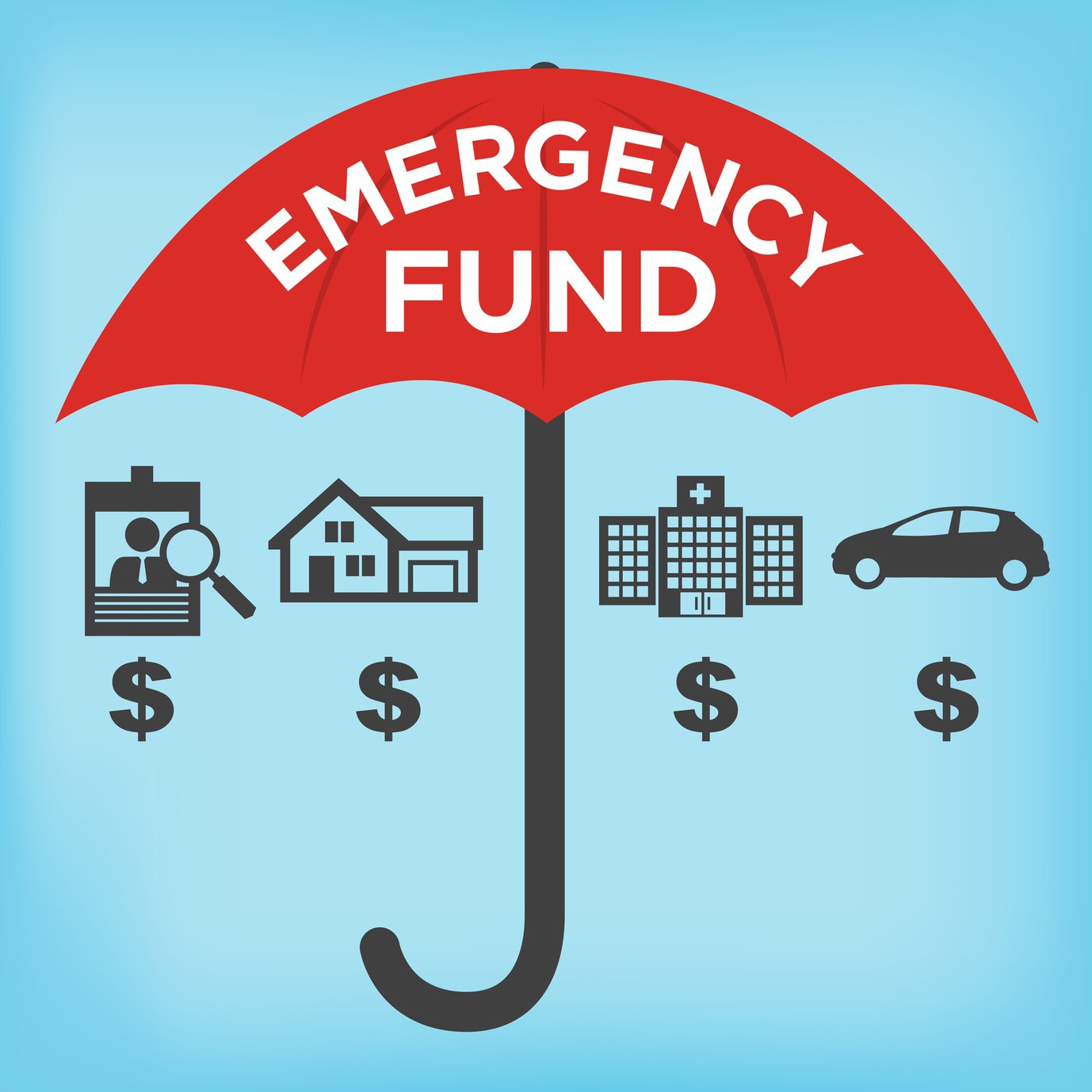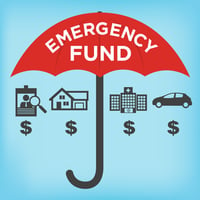How to Build an Emergency Fund for Retirement
April 15th, 2020 | 2 min. read

 If you ever wondered how important an emergency fund is, just consider that two of Dave Ramsey’s 7 Baby Steps pertain to saving cash for life’s financial curveballs.
If you ever wondered how important an emergency fund is, just consider that two of Dave Ramsey’s 7 Baby Steps pertain to saving cash for life’s financial curveballs.
These steps are worth revisiting as you get ready to retire. The common rule of thumb is to save three to six months of expenses in savings (step 3). But you should build that cash reserve even higher for retirement.
One survey found that unexpected events cost $117,000 on average for people 50 to 70 years of age. They become even more expensive when you are financially unprepared. You might resort to racking up credit card debt, taking out a loan or even raiding your retirement accounts, all of which exacerbate the cost and prolong the time to recover.
Also, an emergency fund can act as an income stop-gap during a steep stock market decline. In a bear market, for example, you may be able to rely on your cash reserves to cover basic needs while giving your investment portfolio time to recover.
HOW MUCH SHOULD YOU SAVE IN AN EMERGENCY FUND FOR RETIREMENT?
The optimal amount you should have in your emergency fund depends on a number of personal details such as your various income sources, retirement savings and expenses.
Retirees who rely on their portfolios for income, which is a limited source that can be unstable at times, should build a sizable fund. Instead of three to six months of expenses, you should consider building an emergency fund for retirement of 12 to 24 months of expenses. This can help you pay for emergencies – especially, medical costs – as well as survive any substantial stock market downturns along the way.
WHERE SHOULD YOU PUT AN EMERGENCY FUND?
An emergency fund should be segregated from your regular cash accounts such as your checking account. A savings or money market account is an ideal spot – somewhere accessible but “forgotten” to avoid temptation. Some credit unions will even help you setup a special account just for this purpose.
If you choose to use a certificate of deposit (CD) or money market account, don’t be turned off by low interest rates. The purpose of this account is to have liquid savings with low market risk. You don’t want short-term market losses to get in the way of paying off an emergency expense.
You can, however, earn a little more off your emergency fund by “laddering” CDs. Every three months, buy a 12-month CD until you have four CDs, one of which matures each quarter. Set each one to automatically renew. Then, when you need cash, liquidate the one that was most recently renewed so you won’t miss out on much interest.
TOO MUCH OF A GOOD THING
Holding too much cash in your investment portfolio can actually cost you. Since cash earns very little, if any, interest, too much can affect the growth of your portfolio and reduce your buying power due to inflation. Based on the historical rate of inflation, your money should earn at least 3% just to maintain its buying power. So be sure to monitor your total level of cash across all your accounts on a regular basis. If you’re working with a financial adviser, ask him or her to review your cash amount to make sure it’s reasonable for your needs.
One thing we know for certain is that emergencies happen when least expected and they come with a price. That’s why it is better to expect the best but prepare for the worst.
Advance Capital Management is a fee-only RIA serving clients across the country. The Advance Capital Team includes financial advisers, investment managers, client service professionals and more -- all dedicated to helping people pursue their financial goals.
